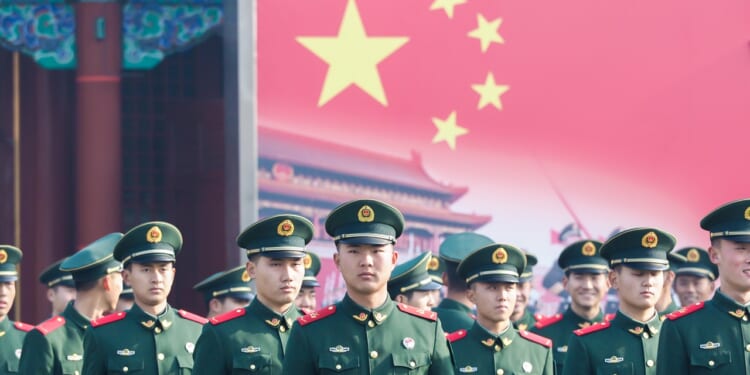By using organic means and espionage, the Chinese military is becoming stronger every year.
China represents the most significant threat to U.S. national security, according to military and intelligence officials.
For several years now, Beijing has taken a far greater role in international affairs, increasingly vying for regional and global supremacy with the United States. In order for Beijing to succeed, developing a technological edge over the United States will be crucial—and according to U.S. military leaders, Beijing has given every indication that this is its aim.
America’s Technological Competition with China
What makes the threat coming out of Beijing that much more acute is the robust and steady technological advances that support the Chinese military.
“China is developing and integrating cutting-edge technologies—AI, hypersonic and advanced missiles, and space-based capabilities—at an alarming pace,” U.S. Navy Admiral Samuel Paparo, the commander of U.S. Indo-Pacific Command (USINDOPACOM), said in recent testimony before the Senate Armed Services Committee.
According to the top military officer in the Indo-Pacific, China utilizes a whole-of-nation approach to its national security, “combining military pressure, cognitive and cyber operations, and economic coercion” to achieve its ends.
Some of China’s more cutting-edge military technologies, including advanced missile systems, space-based capabilities, hypersonic weapons, chemical and biological weapons, and nuclear warheads, are designed to enhance the offensive capabilities of the Chinese military. Others are intended to restrict the capabilities of the U.S. military and its allies. For example, the Chinese military has been creating an Anti-Access, Aerial Denial (A2/AD) umbrella consisting of anti-ship and anti-aircraft systems around Taiwan and the South China Sea. The goal of this umbrella is to limit the effectiveness of the U.S. Navy’s powerful aircraft carrier fleet and keep it as far away from mainland China as possible. Beijing’s rationale is simple: if it can prevent American aircraft carriers from approaching Taiwan out of fear of getting hit or sunk by missiles, then it negates one of the most important advantages of the U.S. military.
China’s Intelligence Collection Is Second to None
But Beijing’s technological advance is far more expansive.
“China is outpacing the U.S. in testing not only these critical technologies, but also technologies from across their military industrial base,” Paparo added.
Although the Chinese defense and aerospace industries are developing technology organically, Beijing’s intelligence services are also scooping up as much classified information about weapon systems and tech as possible. The U.S. National Counterintelligence and Security Center (NCSC) estimates that China steals between $200 and $600 billion worth of intellectual property from the U.S. every year, including both commercial systems and military technology.
Beijing has been using human intelligence and cyber espionage to great effect. The U.S. military believes that the blueprints for the F-35 Lightning II stealth fighter jet in service across the U.S. military are among the military technology purloined by China.
Beijing’s accumulation of classified technology is not purely an intellectual exercise, or an attempt to ferret out secrets about America’s planes in order to fight them. Indeed, many observers have commented that China’s new J-35 stealth fighter jet shares an uncanny similarity with the F-35 Lightning II.
“It’s still fairly new,” Air Force Chief of Staff Gen. David W. Allvin said in November. “But, yes, it’s pretty clear; you could put it side-by-side and see, at least, where we believe they got their blueprints from, if you will.”
In short, by using organic means and espionage, the Chinese military is becoming stronger every year. Soon, it will be strong enough to challenge the U.S. and its allies in the Indo-Pacific. Although that should not necessarily mean open confrontation, competition with China could very well lead to blows.
About the Author: Stavros Atlamazoglou
Stavros Atlamazoglou is a seasoned defense journalist specializing in special operations and a Hellenic Army veteran (national service with the 575th Marine Battalion and Army HQ). He holds a BA from the Johns Hopkins University and an MA from the Johns Hopkins’ School of Advanced International Studies (SAIS). His work has been featured in Business Insider, Sandboxx, and SOFREP.
Image: Shutterstock / twinsterphoto.
















